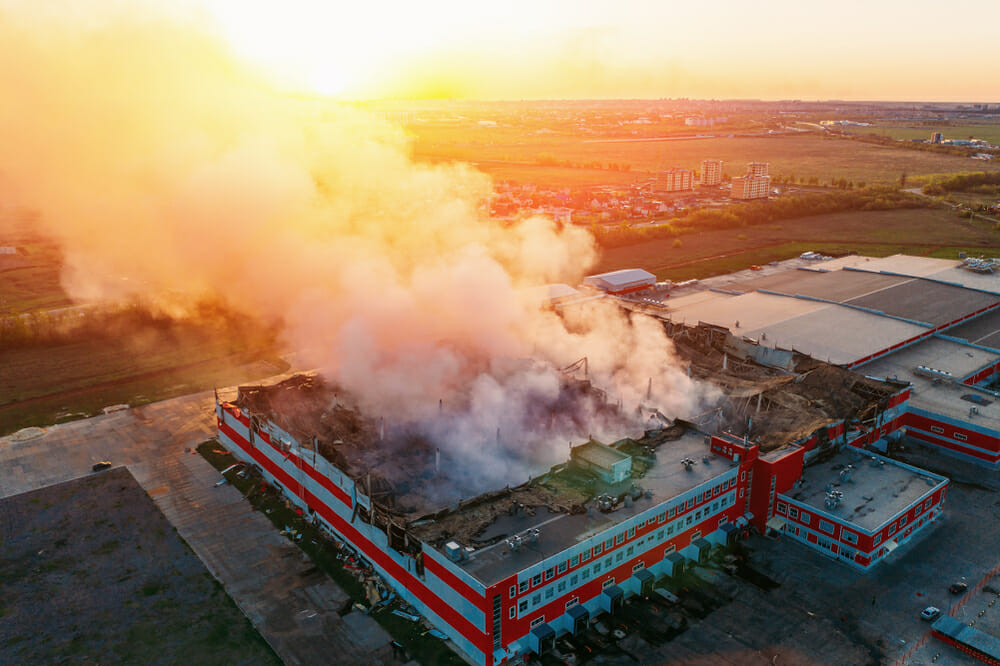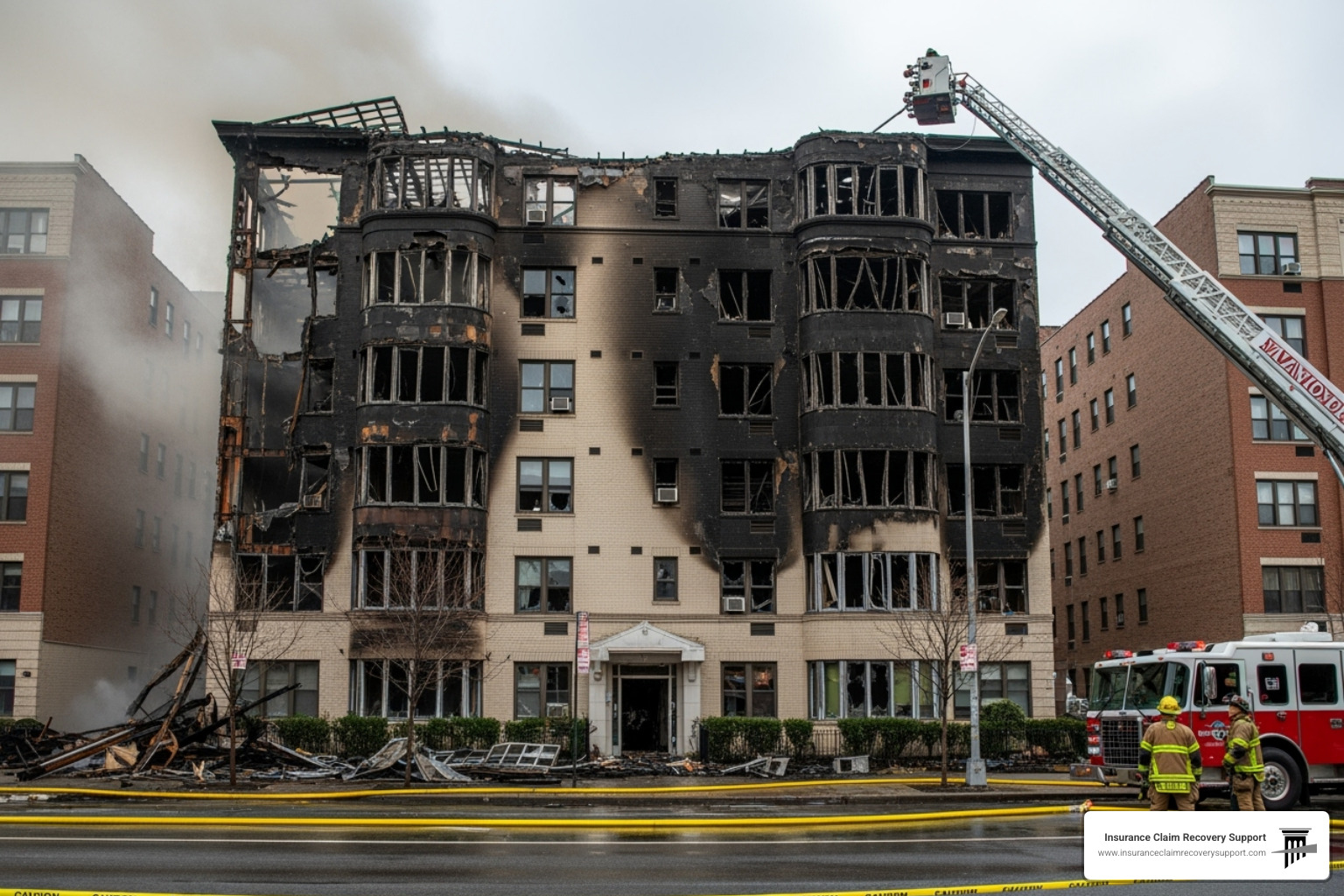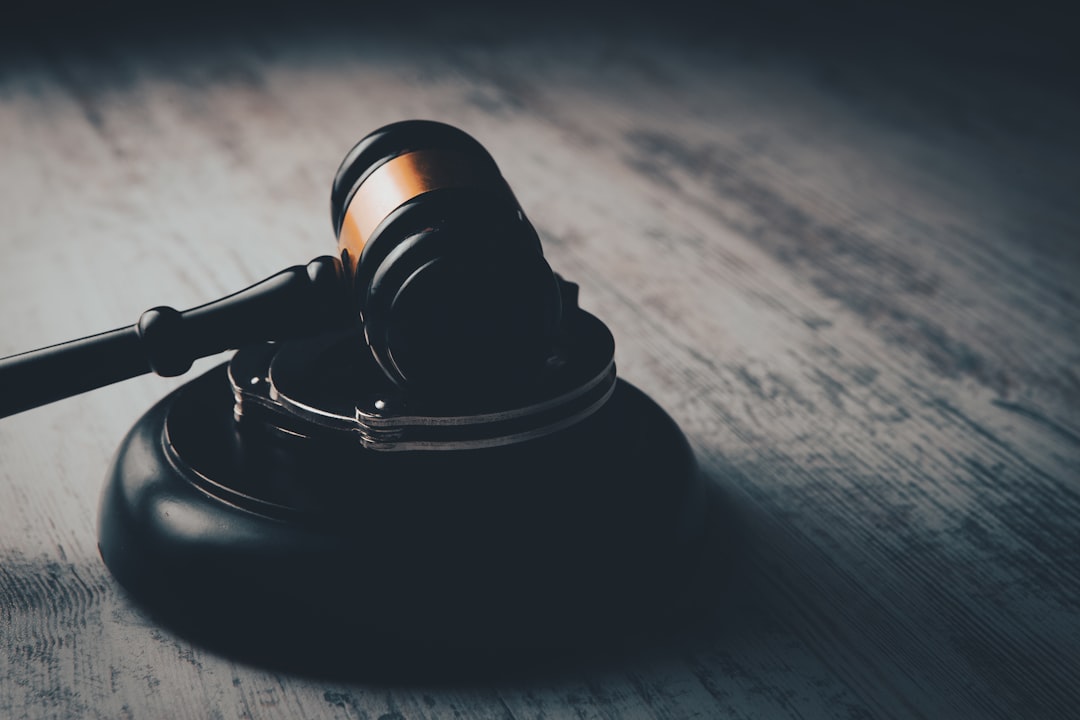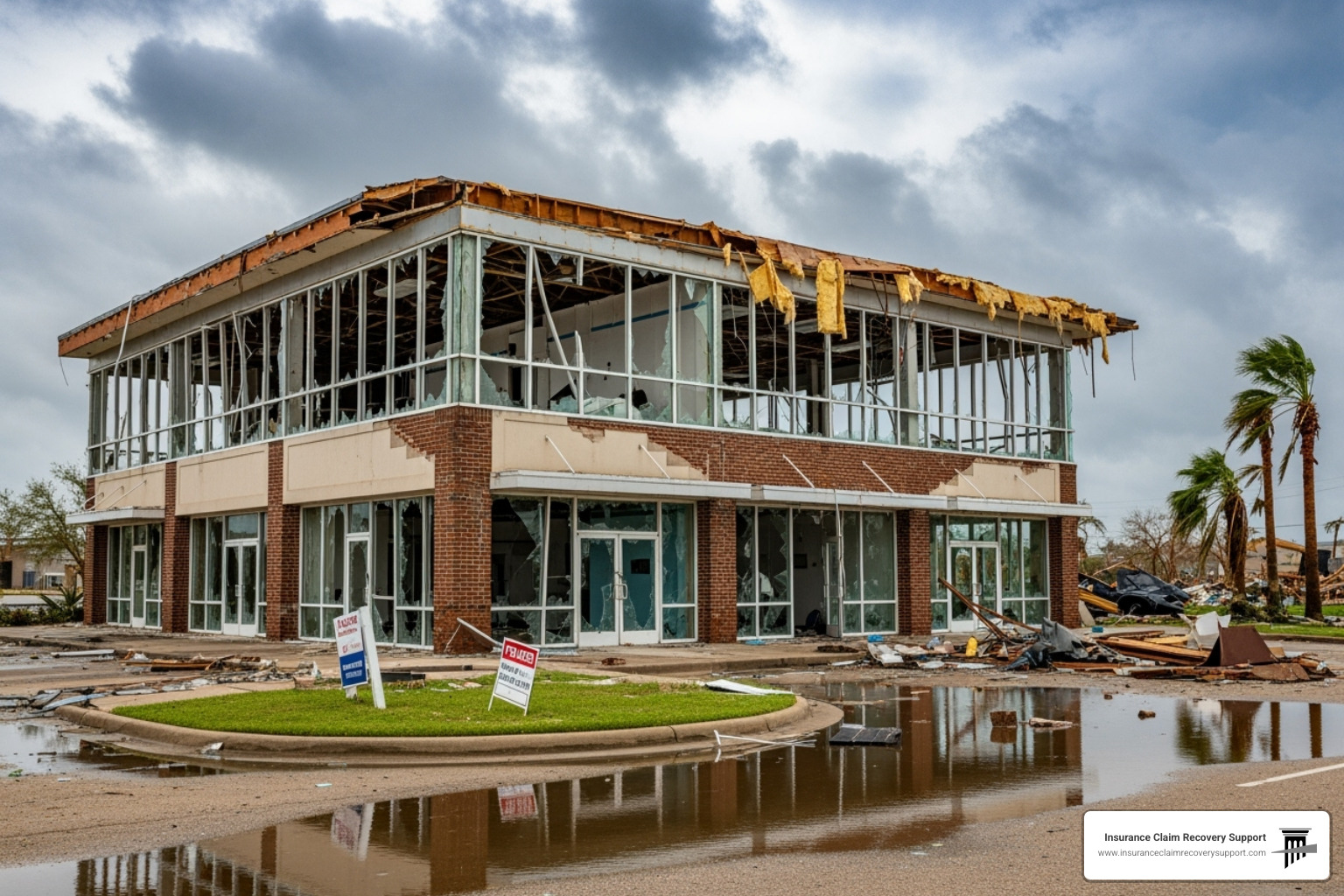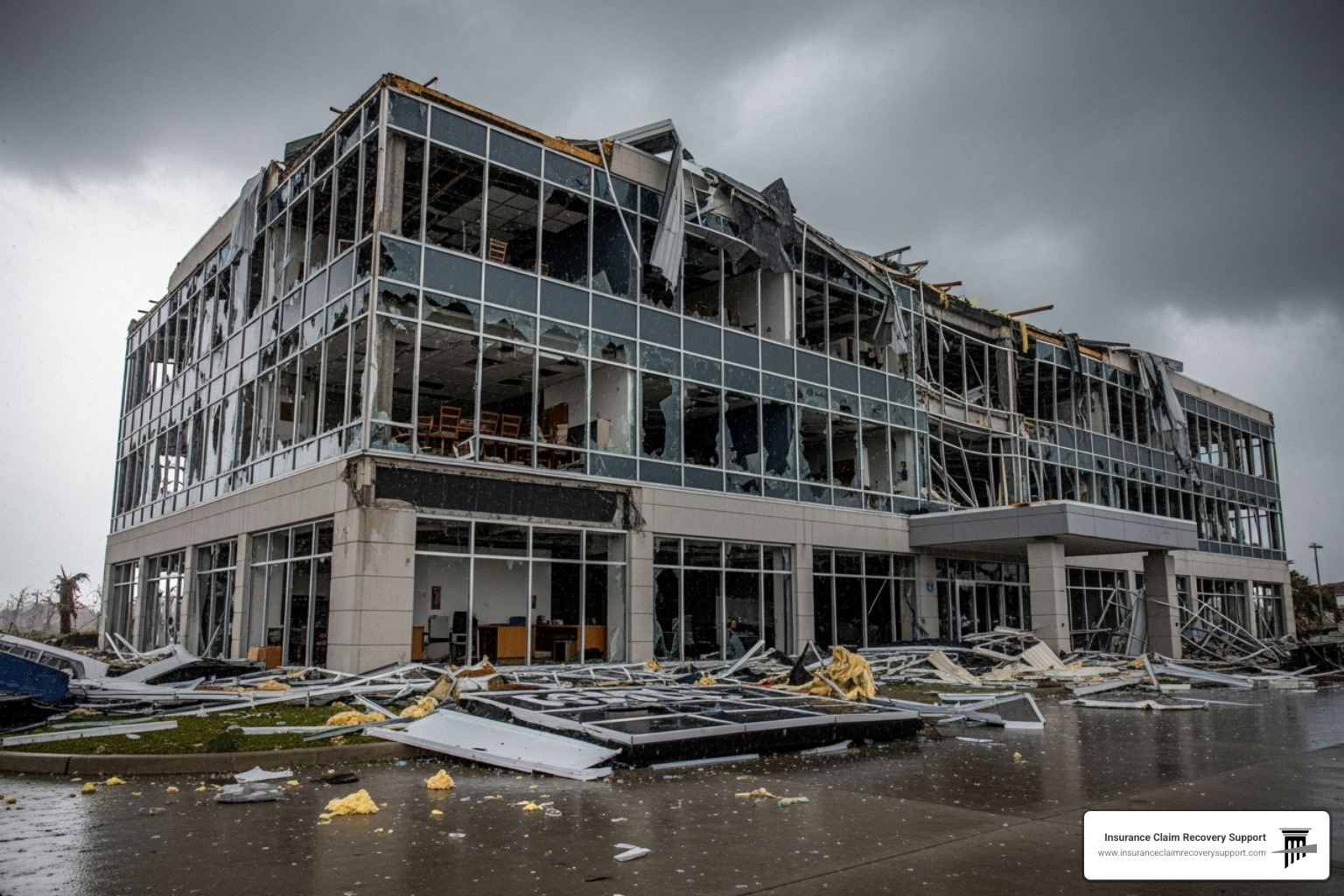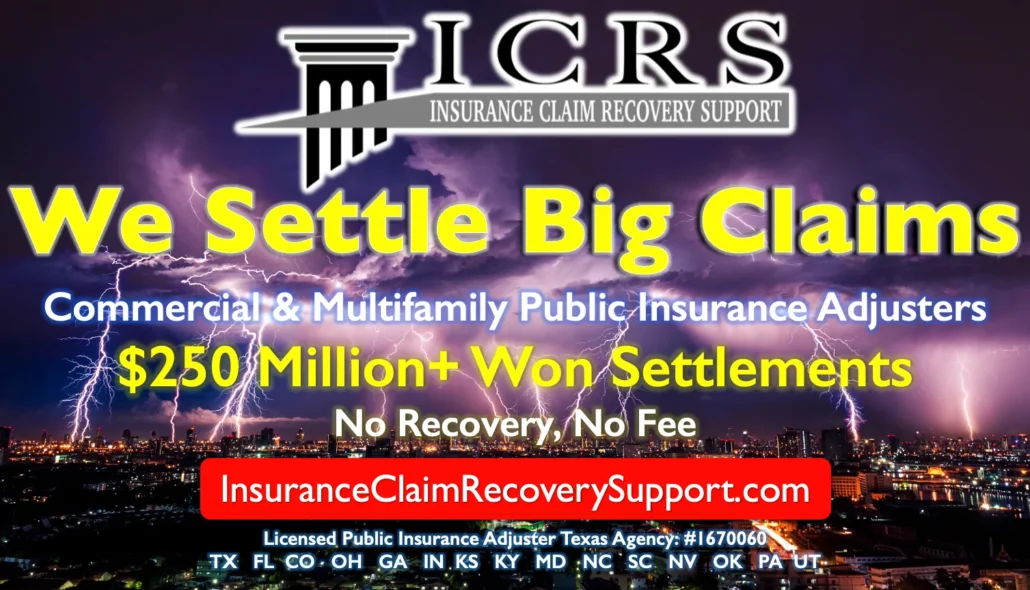Introduction
Commercial Property Insurance Claims – Here’s what every business owner needs to know about adjusting, negotiating, and settling large loss property damage insurance claims for apartments, condo associations, churches, schools, offices, industrial parks, warehouses, retail buildings, historical properties, hotels, storage, and manufacturing facilities. Having a firm grasp on risk management and a thorough understanding of the insurance claims process are crucial for safeguarding the financial well-being of your business in the event of damage.
Common Types of Commercial Property Claims
Running a business is challenging enough without dealing with property damage. Knowing the types of insurance claims you might face can help you prepare and respond effectively. Here are some common types of commercial property insurance claims:
Fire Damage
Fires can destroy buildings, inventory, and equipment quickly. Smoke and water used to extinguish the fire can also cause significant ensuing damage. Quick action is essential to minimize harm and ensure safety.
Storm Damage
Storms, including hurricanes and tornadoes, can wreak havoc on commercial properties. Roof damage, broken windows, and flooding are common issues. Regular maintenance and comprehensive insurance coverage are crucial for minimizing storm impact.
Hail and Wind Damage
Hail and strong winds can cause severe damage to roofs, windows, and the structure of your building. Even without a hurricane or tornado, heavy winds like microbursts can lead to significant damage. Ensuring your property is well-maintained and having the right insurance coverage can help mitigate these risks.
Water Damage
Water damage can occur due to broken pipes, flooding, or heavy rains. It can lead to mold and structural issues. Quick response and thorough documentation are vital for insurance claims.
Theft
Theft not only results in the loss of valuable items but can also cause additional damage during break-ins. Strengthening security measures and having proper insurance coverage are essential to protect your business.
Vandalism
Acts of vandalism can damage your property and disrupt business operations. Documenting the damage and reporting it to your insurer promptly can aid in a smoother claims process.
Business Interruption
When damage to your property halts business operations, business interruption insurance can cover lost income and extra expenses incurred to get back on track. This is crucial for maintaining financial stability during recovery.
Properties We Cover
We adjust property claims for a variety of commercial properties, including but not limited to:
- Apartments and Condos: Multifamily residential buildings often face unique challenges, from tenant displacement to extensive structural damage.
- Churches and Schools: These properties serve the community and require specific attention to detail in claims to ensure quick recovery.
- Offices and Warehouses: Damage to these properties can disrupt business operations and lead to significant financial losses.
- Retail Buildings: Damage can affect inventory, display areas, and customer access, impacting sales and revenue.
- Historical Buildings: When a disaster strikes or damage occurs to a historical building, the type of insurance coverage that typically comes into play is specialized and often tailored to the unique needs of historic properties.
The Role of Public Adjusters
Public adjusters play a vital role in managing commercial property claims. Here’s how they help:
The Role of a Public Adjuster in Commercial Property Claims
Assess Damage: Public adjusters thoroughly inspect your property to determine the extent of the damage. This includes visible and hidden damages.
Prepare Claims: They gather all necessary documentation and evidence to support your claim. This involves collecting photos, videos, receipts, and estimates.
Negotiate with Insurance Companies: Public adjusters advocate for you, ensuring you receive a fair settlement. They handle all communications and negotiations with the insurance company.
Maximize Settlements: With their expertise, public adjusters aim to get you the maximum compensation you deserve under your policy.
Policy Interpretation: They help you understand the complexities of your policy, ensuring you know what is covered and what is not.
Compel Insurers to Perform: Public adjusters push insurance companies to act promptly and fairly, ensuring they meet their obligations.
Help Meet Burden of Proof: They assist policyholders in meeting their burden of proof, providing detailed documentation and evidence.
Dispute Insurer’s Coverage Decisions: If an insurer’s decision lacks credibility, public adjusters dispute it on your behalf, fighting for a rightful settlement.
Common Disputes for Large Loss Claims
Understanding common disputes can prepare you for potential challenges:
- Coverage Disputes: Insurers may argue that certain damages aren’t covered by your policy. Knowing your coverage details can help counter these claims.
- Undervaluation: Insurers might understate the damage costs. A public adjuster can provide a more accurate assessment.
- Delayed Claims: Insurers may delay the claims process. A public adjuster can expedite the process and ensure timely settlements.
- Denial of Claims: Some claims might be denied on grounds like pre-existing conditions or poor maintenance. A public adjuster can help contest these denials.
By understanding these potential issues and having a public adjuster on your side, you can navigate the claims process more effectively and ensure your business recovers as quickly as possible.
Managing commercial property claims can be daunting. Whether you’re dealing with a fire at your restaurant or storm damage to your warehouse, understanding the claims process is crucial. Faulty claim presentations can lead to underpaid or denied claims, placing your business at risk. By leveraging expert public adjusters, you ensure that your commercial property insurance claim is handled professionally and effectively, giving you peace of mind.

Understanding Commercial Insurance Claims
Types of Commercial Property Claims
Commercial property insurance is designed to protect your business from various types of damage. Here’s a look at the most common claims:
- Fire Damage: Fires can devastate buildings, equipment, and inventory. Insurance can cover the cost of repairs, replacements, and even the loss of income during downtime.
- Storm Damage: Severe weather such as hurricanes, tornadoes, and hailstorms can cause significant damage. This includes broken windows, damaged roofs, and structural harm.
- Water Damage: Issues like burst pipes, leaks, and flooding can lead to extensive damage. While standard policies may not cover flood damage, other types of water damage are typically included.
- Vandalism and Theft: If your property is vandalized or items are stolen, insurance can help cover repair costs and replace stolen goods.
- Business Interruption: This covers lost income and ongoing expenses when your business operations are halted due to a covered event.
- Structural Damage: This includes damage to the foundation, walls, and other structural components of your building.
Common Commercial Properties Covered
Commercial property insurance isn’t one-size-fits-all. Different types of properties have unique needs and risks. Here are some common properties that benefit from commercial insurance:
- Apartment Buildings: Protects against damage to the building structure and common areas. Also covers loss of rental income during repairs.
- Condo Associations: Covers shared spaces and the building’s exterior. Important for navigating complex claims involving multiple owners.
- Churches: Protects the building and its contents, including valuable items like stained glass windows and religious artifacts.
- Schools: Covers buildings, educational equipment, and potential liability claims from students or staff.
- Office Buildings: Protects against damage to the building and office equipment. Also covers business interruption and liability claims.
- Warehouses: Includes coverage for the building and stored goods. Essential for businesses that rely on inventory.
- Retail Buildings: Covers the structure, inventory, and business interruption losses. Important for maintaining operations after a loss.
By understanding the types of claims and properties covered, you can better prepare for potential risks and ensure your business is adequately protected.
Next, we will explore the pivotal role of public adjusters in managing commercial property claims, ensuring you get the settlement you deserve.
The Role of a Public Adjuster in Commercial Property Claims
Navigating commercial insurance claims can be daunting, especially when dealing with extensive damage or complex policies. This is where a public adjuster comes in. Public adjusters are licensed professionals who represent the policyholder, not the insurance company. Their primary goal is to ensure you get the maximum settlement for your claim.
How Public Adjusters Help
Damage Assessment: Public adjusters conduct thorough inspections to document all damage. This includes taking photographs, videos, and detailed notes to ensure nothing is overlooked. For instance, Stone Claims Group once helped Coral Reef, initially offered $910K, settle for $6.5 million by identifying additional damages to roofs, doors, windows, stucco, and paint.
Claim Preparation: They handle all the paperwork, making sure every detail is accounted for. This includes preparing a comprehensive claim package that outlines the extent of damage and the associated costs.
Maximizing Settlements: Their expertise often leads to higher settlements. Public adjusters are skilled at spotting potential damage that might be overlooked and can negotiate effectively, increasing your potential overall payout.
When to Hire a Public Adjuster
Immediately After a Loss: The sooner you hire a public adjuster, the better. Early involvement ensures that all damage is documented from the start, and they can guide you through the initial steps of the claims process.
Complex Claims: If your claim involves multiple types of damage or extensive losses, a public adjuster can help manage the complexity. They are experienced in handling intricate claims that can be overwhelming for property owners.
Large Claims: For substantial claims, particularly those exceeding $100,000, having a public adjuster can be invaluable. Their expertise ensures that you receive the full amount you’re entitled to under your policy.
Denied or Underpaid Claims: If your claim has been denied or you believe the settlement offer is too low, a public adjuster can re-evaluate your claim and negotiate for a higher payout. They can also assist in appealing denied claims, ensuring that all policy conditions and requirements are met.
By leveraging the skills and experience of a public adjuster, you can navigate the claims process more effectively and secure a settlement that adequately covers your losses.
Next, we will discuss the steps to find the right insurance adjuster for your needs, ensuring you choose a professional who can best represent your interests.
Steps to Find the Right Insurance Adjuster
Finding the right insurance adjuster is essential for a successful commercial insurance claim. Here’s how to ensure you choose the best professional for your needs:
Research and Credentials
- Licensing: Verify that the adjuster is licensed in your state. This ensures they meet all state requirements and regulations.
- Bonding: Ensure they are bonded. This provides an extra layer of protection for you.
- Percent of Claims that get escalated to litigation or appraisal: A low number of claims that get escalated is a good indicator that the public adjuster knows how to settle claims and manage policyholder risk.
- Professional Certifications: Check if they have any certifications such as Haag Commercial Roof Inspector or Institute of Inspection Cleaning and Restoration Certification (IICRS). Certifications can indicate a commitment to high standards.
- Years of Experience: Look for adjusters with several years of experience in handling commercial property claims.
- Online Reviews: Read reviews from previous clients to gauge their satisfaction and the adjuster’s reliability.
- Number of Large Loss Claims Settled: Ask how many large loss claims they have successfully settled.
- Complaint History: Inquire if any complaints have been filed against them by policyholders.
- Capacity for New Business: Ensure they have the capacity to take on new clients.
- References: Request references and follow up with them to get first-hand feedback.
Evaluating Experience
Experience is crucial. You need an adjuster who has handled claims similar to yours, especially in the commercial and multifamily asset classes.
- Types of Claims Handled: Ensure they have experience with commercial property claims, including apartments, condo associations, churches, schools, office buildings, warehouses, and retail buildings.
- Industry-Specific Experience: Look for adjusters who have dealt with claims in your specific industry. For example, those who understand the complexities of high-rise buildings or warehouse spaces.
- Case Studies and Success Stories: Ask for examples of past claims they’ve successfully settled. For instance, Insurance Claim Recovery Support settled a hail claim for a Houston Condominium association at $4.7 million, after the claim was denied. Another example is a Church that suffered a fire in Dallas that settled for the policy limit of approximately $2 million within 10 business days. Or, Austin, Texas retail building roof hail claim that settled over 200% above the initial offer by the insurer.
Checking References and Reviews
References and reviews provide insight into an adjuster’s reliability and effectiveness.
- Client Testimonials: Look for positive feedback from previous clients. For example, Insurance Claim Recovery Support Public Adjusters have numerous success stories, including helping a Texas-based apartment management firm.
- Online Reviews: Check platforms like Google or industry-specific forums.
- Professional References: Ask for references from other professionals in the industry.
Conducting Interviews
Interviewing potential adjusters helps you understand their process and determine if they’re a good fit.
- Questions to Ask: Inquire about their experience, approach to claims, and how they handle disputes.
- Understanding Their Process: Ensure they explain their process clearly, from initial assessment to settlement.
- Fee Structure: Understand their fee structure. Some adjusters charge a percentage of the settlement, while others may have different arrangements.
- Communication Style: Ensure they communicate clearly and promptly. Good communication is key to a smooth claims process.
By following these steps, you can find an insurance adjuster who will effectively advocate for your business, ensuring a fair and timely settlement.
Next, we will dive into the commercial insurance claim process, covering initial assessments, documentation, and navigating settlements.
Commercial Insurance Claims – Commercial Property Claims We Adjust Property Claims for Apartments, Condo Associations, Churches, Schools, Office, Warehouses, Retail Buildings
Managing the risk policyholders face when dealing with commercial insurance claims is essential for protecting the financial health of your business when damage occurs. Here’s what you need to know:
The Commercial Insurance Claim Process
Navigating a commercial insurance claim can be complex. Here’s a step-by-step guide to help you understand the process:
- Initial Assessment: After a loss, the first step is to assess the damage. This involves a thorough inspection of the property to document all visible damage. For example, after a hurricane, a warehouse might have roof damage, broken windows, and water intrusion.
- Documentation: Proper documentation is crucial. Take detailed photos and videos of the damage. Keep records of all damaged items, including their value and purchase date. For instance, if a fire damages a restaurant, document the loss of kitchen equipment, furniture, and inventory.
- Policy Review: Review your insurance policy to understand your coverage limits, exclusions, and deductibles. This helps you know what to expect from your claim.
- Claim Submission: Submit your claim to the insurance company with all necessary documentation. This includes the initial assessment, photos, videos, detailed estimate of legitimate damages, policy language, statutes, assessment of the insurer’s claim file, compliance with policy terms, and any evidence that supports your claim.
- Negotiation: The insurance company will send an adjuster to assess the damage. Be prepared to negotiate the settlement. A public adjuster can be invaluable here, ensuring that all damages are accounted for and that you receive a fair and prompt settlement.
- Settlement: Once an agreement is reached, the insurance company will provide a settlement offer. Review it carefully and negotiate if necessary to ensure it covers all your losses.
Importance of Proper Documentation
Proper documentation can make or break your claim:
- Damage Inventory: List all damaged items, including their value and purchase date. This helps in proving the extent of your loss.
- Financial Impact: Document the financial impact of the damage, including lost revenue and extra expenses incurred. For example, if a storm disrupts your business operations, keep records of lost sales and additional costs for temporary relocation.
- Business Interruption: If your business is interrupted, document the duration and financial impact. Documents include financial statements, leases and rent rolls. This helps in claiming business interruption insurance.
- Extra Expenses: Keep track of any extra expenses incurred due to the damage, such as temporary repairs or additional security measures.
Navigating the Claim Settlement
Here’s how to navigate the settlement process effectively:
- Working with Adjusters: Collaborate with the insurance company’s adjuster but also consider hiring a public adjuster. They can help ensure that all damages are properly assessed and that you receive a fair settlement. If your claim is large or complex, engaging a public adjuster early in the process is wise.
- Understanding Policy Limits: Know your policy limits to avoid surprises. For instance, if your policy has a cap on flood damage, be aware of that limit when negotiating your settlement.
- Dispute Resolution: If you disagree with the insurance company’s assessment, consider dispute resolution methods like mediation or arbitration. A public adjuster can assist in this process.
- Final Settlement: Once a final settlement is reached, review it carefully. Ensure that it covers all your documented losses. Only sign the settlement agreement once you’re satisfied with the offer.
By understanding these steps and working closely with a public adjuster, you can navigate the commercial insurance claim process more effectively and ensure a fair settlement for your business.
Next, we will address some frequently asked questions about commercial property claims to help you better understand the process and your rights.
Frequently Asked Questions about Commercial Property Claims
What is the definition of commercial property insurance?
Commercial property insurance is a type of insurance that covers buildings, inventory, equipment, tools, and sometimes outdoor items against damage or loss. It is designed to protect the physical assets of a business from unforeseen events such as fire, theft, vandalism, and certain natural disasters. Each policy can vary, so it’s crucial to understand your specific coverage.
What types of damages are typically covered under commercial property insurance?
Commercial property insurance typically covers a range of damages, including:
- Fire Damage: Costs for repairs or rebuilding after a fire.
- Storm Damage: Damage from wind, hail, tornado, hurricane, and lightning.
- Water Damage: From plumbing issues, not flooding (which requires separate insurance).
- Theft and Vandalism: Stolen equipment or graffiti cleanup.
- Business Interruption: Loss of income if your business must close temporarily due to covered damage.
How can a public adjuster help with my commercial property claim?
A public adjuster is an insurance claims expert who advocates for the policyholder, not the insurance company. Here’s how they help:
- Contingency-Based Services: In most states, public adjusters typically work on a contingency fee basis. This means you and your public adjuster’s interests are aligned.
- Authority: Licensed public adjusters have the authority to represent and negotiate on behalf of policyholders. Contractors do not have the authority to interpret policy, negotiate claims, or make demands on insurers.
- Damage Assessment: They thoroughly inspect and document all damage.
- Claim Preparation: They handle all paperwork and ensure it’s correctly filed.
- Negotiation: They negotiate with the insurance company to maximize your settlement in minimum time.
- Policy Review: They ensure you get all the coverage you’re entitled to under your policy.
By hiring a public adjuster, you ensure that you have an expert on your side to manage the complexities of the claim and negotiate a better settlement. This can be particularly valuable for large claims or when dealing with denied or underpaid claims.
Next, we will address some frequently asked questions about commercial property claims to help you better understand the process and your rights.
Conclusion
Navigating commercial insurance claims can be overwhelming, but you don’t have to do it alone. At Insurance Claim Recovery Support LLC, we specialize in representing commercial and multifamily policyholders to ensure you get the fair settlement you deserve.
Public adjusters play a crucial role in this process. They help you understand your policy, document your losses, and negotiate with the insurance company on your behalf. This can be the difference between a denied claim and a successful settlement.
Benefits of Hiring a Public Adjuster
- Maximizing Claim Settlements: We ensure every aspect of your loss is accounted for, from structural damage to business interruption.
- Expert Documentation: Proper documentation is key to a successful claim. We help you gather and present all necessary evidence.
- Negotiation: With our experience, we negotiate assertively with insurance companies to get you the best possible outcome.
- Protecting Your Financial Health: A fair settlement is critical to your business’s recovery and ongoing success.
Our commitment is to protect your interests and get you back on your feet as quickly as possible. With Insurance Claim Recovery Support LLC, you have a reliable partner who understands the intricacies of commercial property claims.
For more information on how we can assist you, visit our commercial property damage claims page.

